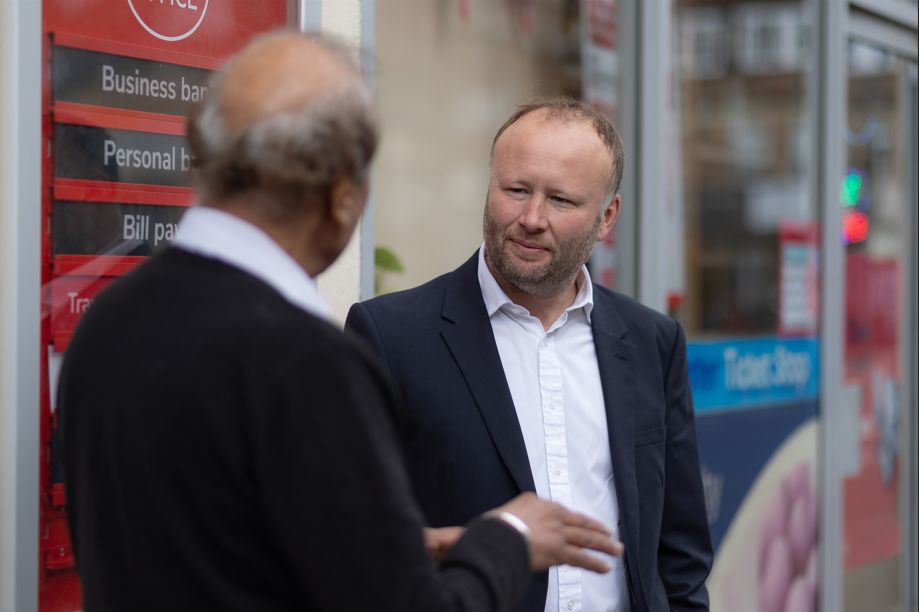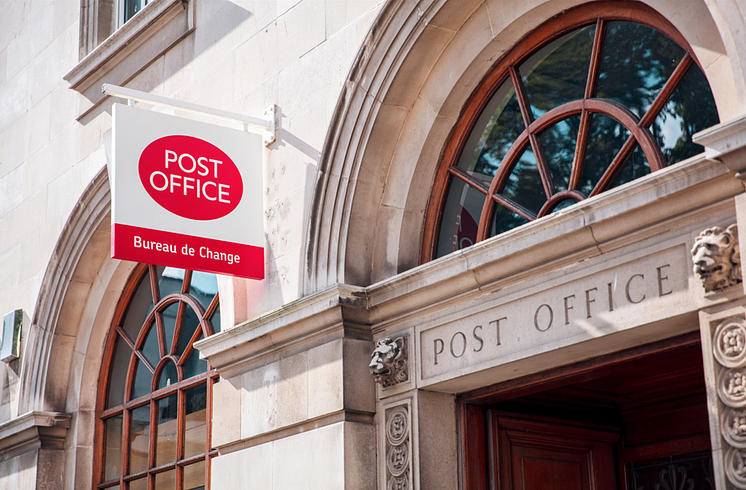
Press release -
Post Office proposes policy reforms to safeguard UK high street presence and drive new revenue streams
- Government Green Paper consultation is once-in-15-year opportunity for public views on the future of Post Office
- Post Office wants to work with Government to develop clear plan to navigate the next decade as a modern retailer
- Post offices can help deliver on this Government’s ambitions to revitalise UK high streets, drive economic growth and modernise public services
- Transformation well underway, with more to do to regain public trust and reset relationship with postmasters and partners
Post Office today (29 September) proposes a package of policy reforms in response to the Government Green Paper consultation on the future of Post Office.
This open consultation – the first in 15 years – seeks public views that will shape the Government’s vision and objectives for Post Office over the next decade and beyond.
Post Office today sets out its ambitious vision to revitalise UK high streets, drive economic growth and modernise its public service role with five key priorities:
- Extend Post Office’s offer to customers: Post offices must be a one-stop-shop for enhanced banking and parcels services with new services, like advice for small businesses.
- Enhance Post Office’s role in government service delivery: Make post offices the trusted place for essential government services, like digital ID or pharmacy prescription collection.
- Protect the network: Maintaining nationwide coverage through the Access Criteria and the 11,500-branch requirement to safeguard access for rural and urban communities alike.
- Recognise Post Office’s social value: Explore tailored business rates relief for post offices given the unique social contribution that branches deliver in communities, estimated to be worth £6.5 billion each year.
- Create a flexible policy framework so that Post Office and its network of branches can evolve over the next decade as consumer demands change.
These proposals aim to safeguard the future of Post Office so communities can have confidence that their local branch will remain an important hub on the high street over the next decade and beyond. This is particularly important for those in rural and remote areas, digitally excluded groups, and small businesses, for whom post offices are often the last remaining hub for critical postal, banking, government, and utility bill payment services.
Post Office must also be fit to serve the next generation of customers as a commercial, modern retailer. Maintaining a flexible policy framework – one that allows Post Office to evolve with customer demands and adapt to changing market trends – will be crucial to ensuring financial stability for branches and generating revenue for the postmasters and partners who operate them.
Today, the Post Office network generates a social value of £6.5 billion annually for households and small and medium-sized enterprises (SMEs) – an increase of over 30% since 2022 – and economically, employs over 50,000 people and generates £4.7 billion annually on high streets. Safeguarding and boosting this value will allow the network to go further still to deliver for the public.
Financial stability underpins all the proposals set out in Post Office’s Green Paper response. The organisation’s five-year Transformation Plan is underway to fundamentally reset the business and transition to a new relationship with postmasters and partners, including through a £250m increase in their annual renumeration by 2030.
Neil Brocklehurst, Post Office CEO, said: “Post Office has been part of the everyday fabric of British life for almost 400 years. But we cannot afford to stand still.
“Digital technologies have transformed how we shop, transact and communicate. And like any modern retailer, we must evolve to meet customer demand and sell the products and services which will drive revenue for the postmasters and partners who operate our branch network.
“We want to work with Government to develop a clear vision for Post Office to navigate the next decade and our Green Paper response sets out how we propose to do that. For me, it means strengthening our position on UK high streets and in rural communities to deliver those face-to-face services which so many people value, whilst also developing our online offer to become a more commercial, forward-thinking and sustainable business.
“Post Offices can play a central role to revitalise our high streets, drive economic growth and modernise government services.
“I look forward to working with our postmasters, partners, customers and Government as we continue to transform this vital organisation and I’m confident we will see a strong and vibrant Post Office network across the UK for decades to come.”

The consultation will close on 6th October 2025.
To see the Post Office’s response in full visit:
Categories
About the Post Office
- With over 11,500 branches, Post Office has the biggest retail network in the UK, with more branches than all the banks and building societies combined.
- Post Office is helping anyone who wants cash to get it whichever way is most convenient. Partnership with over 30 banks, building societies and credit unions means that 99% of UK bank customers can access their accounts at their Post Office.
- Cash withdrawals, deposits and balance enquiries can be made securely and conveniently over the counter at any Post Office; and the biggest investment by any organisation or company in the last decade is being made to safeguard 1,400 free-to-use ATMs across the UK.
- Post Office is simplifying its proposition for Postmasters with a focus on its cash and banking; mails and parcels; foreign exchange; and; bill payments services.
- Research has found that visits to the Post Office help drive another 400 million visitors to other shops, restaurants and local businesses equating to an estimated £1.1 billion in additional revenue for High Street businesses.
- 99.7% of the population live within three miles of a Post Office; and 4,000 branches are open seven days a week.





